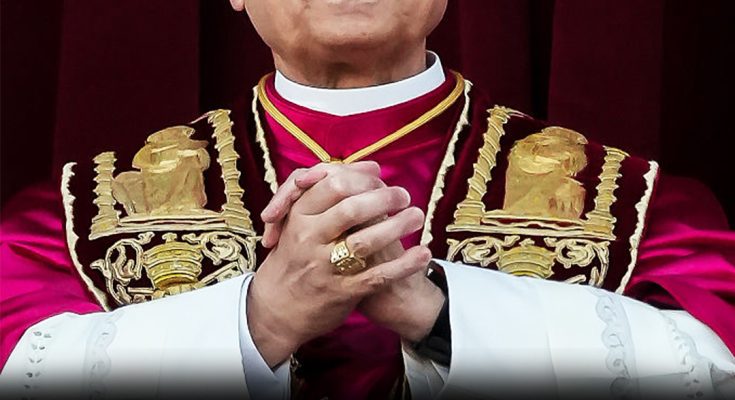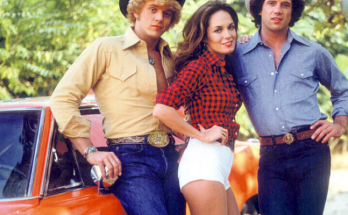
When 69-year-old Robert Francis Prevost, a Chicago native, emerged as the newly elected pope, history was made. For the first time ever, an American would lead the Catholic Church.
But it was the name he chose — Pope Leo XIV — that truly set the tone. According to some, his name wasn’t just tradition, it’s a message.
Making history
For days, the world held its breath, eyes fixed on the chimney above the Vatican. Speculation swirled, and tension hung in the air as the Catholic Church prepared to reveal its new leader. Then, on May 8, it finally happened — white smoke poured from the Sistine Chapel, signaling that a new pope had been chosen.
Moments later, a hush fell over the crowd as the deep burgundy velvet curtains parted on the balcony of St. Peter’s Basilica, the same balcony where Pope Francis had greeted the faithful just weeks earlier.

The conclave’s 133 cardinals made history when they elected Robert Prevost, who will now be known as Pope Leo XIV. While his name had circulated among possible candidates, Prevost wasn’t the frontrunner.
Several other figures were seen as favorites heading into the vote — but they ultimately failed to secure enough support.
Relationship with Trump
Much of the world is zeroing in on the fact that Pope Leo XIV hails from the United States, a point of pride for the country’s more than 50 million Catholics.
Some are even speculating that the new pope could end up stealing a bit of the spotlight from none other than President Donald Trump.
Unsurprisingly, Donald Trump weighed in on the historic announcement, calling it a ”great honor” for the United States.
Posting on Truth Social, the former president wrote: ”Congratulations to Cardinal Robert Francis Prevost, who was just named Pope. It is such an honor to realize that he is the first American Pope. What excitement, and what a Great Honor for our Country. I look forward to meeting Pope Leo XIV. It will be a very meaningful moment!”
On Thursday afternoon, President Donald Trump told reporters that he had already received a call from the new pope’s team.
“They’ve already called. They have already spoken to us, and we’ll see what happens,” Trump said when he was asked whether he planned to meet the pope.
Whether the two leaders will find common ground remains to be seen. But within the Vatican, Prevost is seen as a compromise candidate — someone both conservative Americans and progressive Europeans and Asians could agree on. In a deeply divided Church, he may have been the least controversial choice in a battle of ideologies.
The name
And when it comes to ideology and politics, there’s no denying it — the pope is, inevitably, a political figure. Pope Leo XIV is expected to follow in his predecessor’s footsteps when it comes to championing the rights of refugees and other vulnerable communities.
In his very first address, Leo XIV made it clear: his Church will stand with those who suffer. He also extended a hand beyond the walls of the Vatican — reaching out to people of other faiths and those outside the Church entirely, signaling a papacy rooted in compassion, unity, and global dialogue.

The name Pope Leo XIV appears to signal a focus on solidarity and bridge-building. While popes aren’t required to change their names upon election, every pontiff over the last 470 years has done so—often choosing the name of a previous pope they admire, as a way to honor their legacy and indicate the direction they hope to take the Church.
The last pope to carry the name was Leo XIII, who served from 1878 to 1903. Born Gioacchino Vincenzo Raffaele Luigi Pecci, he was an Italian pope celebrated for his intellectual depth and strong social teachings.
”The worker’s Pope”
Pope Leo XIII’s Rerum Novarum outlined fundamental rights for workers, advocating for fair wages, safe working conditions, and the formation of trade unions. At the same time, the document affirmed the right to private property and free enterprise, while also rejecting both socialism and unregulated capitalism.
Often referred to as the ”social pope” or ”the workers’ pope,” Leo XIII is considered the architect of the Catholic Church’s modern social teachings, laying the foundation for the Church’s ongoing commitment to social justice.
As Father Vito Crincoli explained to ABC News:
“Looking to the history, Leos were strong popes. Like Leo XIII, he loved his people. He loved his people. His people, he considered man not a machine. A man’s work was a reflection of his dignity. We don’t know this yet, but it’d be really interesting to know why he took the name Leo.”
Fluent in Italian and Spanish
In a political sense, Pope Leo XIV may end up mirroring Pope Francis in his concern for the poor and marginalized. His choice of name certainly seems to indicate this.
However, he also appears to be more conservative — especially when it comes to issues like LGBTQ rights and the role of women in the Church. He has, for example, spoken out firmly against same-sex marriage.
Pope Leo XIV previously served as the Bishop of Chiclayo in Peru from 2015 to 2023 and was the General of the Order of Saint Augustine from 2001 to 2013.
Fluent in English, Spanish, and Italian, he teaches in all three languages. Born and raised in Chicago, he holds an undergraduate degree from Villanova University in Pennsylvania, where he studied mathematics rather than theology.
READ MORE



